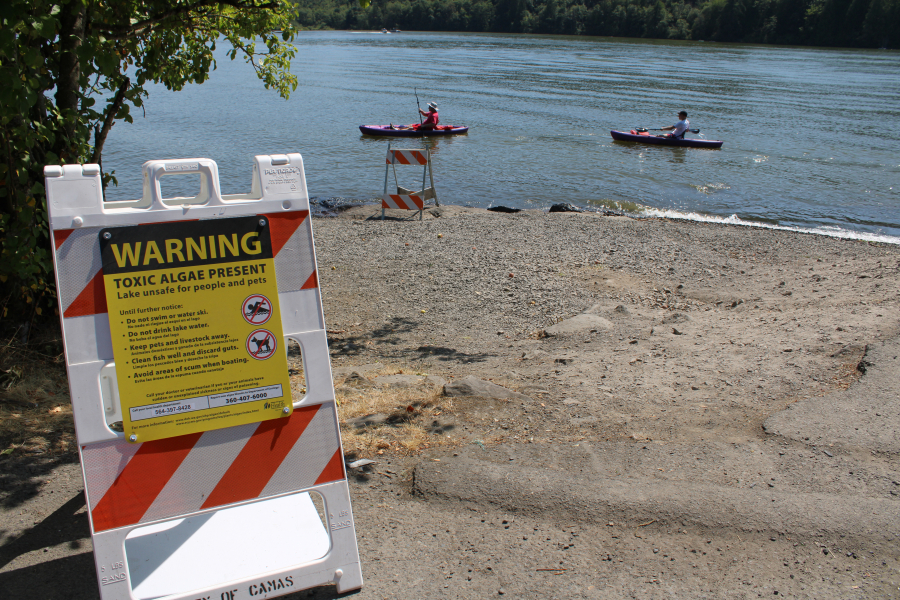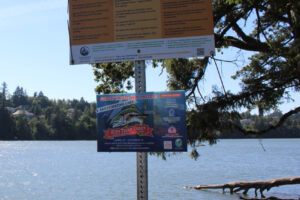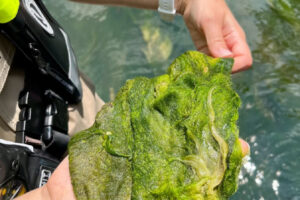Public Health warns against all forms of recreating in the lake, including swimming, kayaking, paddle boarding, canoeing, water-skiing and fishing.
“We’re concerned people may think the lake is safe for recreating because they don’t see any of the telltale blue-green scum,” said Alyssa Payne, Clark County Public Health environmental health specialist. “The water may look normal, but the toxin levels are high.”
According to a Clark County press release issued Friday morning, results from water samples taken Monday from Lacamas Lake at the Heritage Park boat launch revealed cyanotoxins above the threshold levels recommended by the Washington Department of Health.
Danger signs are being posted at the boat launch, entry to Heritage Trail and other public access points to the lake.
Public Health officials note that the blue-green algae is present, even if it is not visible on the water’s surface.
The cyanotoxins from blue-green algae can cause significant health problems when inhaled, ingested or absorbed through contact with the skin, including: wheezing, coughing, chest tightness, shortness of breath, rashes, itching, blisters, abdominal pain, diarrhea, vomiting, numbness of the lips or tingling in the extremities and dizziness. The toxins can kill pets that drink the water.
Public Health stated in the press release that it will continue to monitor the lake weekly until its cyanotoxin numbers fall below the state’s recommended levels, and will continue to update the public through signage around Lacamas Lake.
Camas’ Heritage Park remains open, and water at the park’s restrooms and shelters has not been impacted by the toxic algae.
For more information and updates on other Clark County public beaches, visit clark.wa.gov/public-health/public-beaches.





